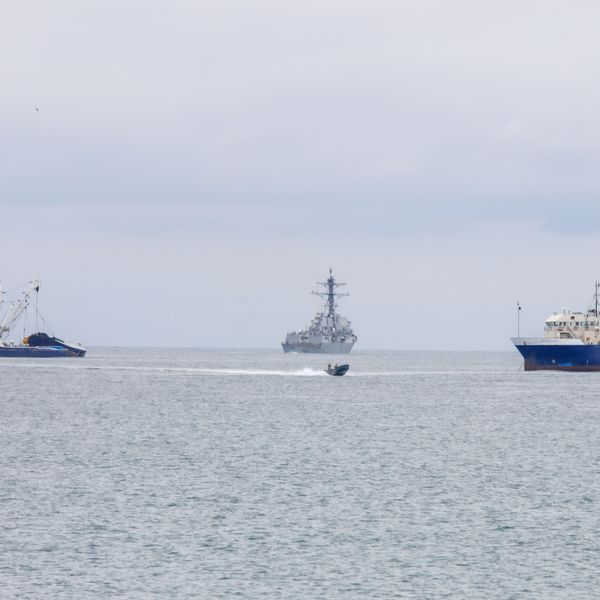An environmental impact statement released Thursday from the federal government could mount to a "death sentence" for marine mammals as the pursuit for oil and gas deposits may turn a 300,000 square mile area in the Atlantic Ocean into a "blast zone," a conservation group warns.
In its final environmental impact review, the Bureau of Ocean Energy Management stated that it had "establishe[d] multiple mitigation measures designed to minimize the impacts to marine life" from seismic testing, which can include the use of air guns blasts, in a stretch of the Atlantic that extends from Delaware to Florida.
The area is home to 39 marine mammals, and the Bureau expects 34 of them to be impacted, including six endangered species of whales. One of those is the North Atlantic Right Whale, whose total population may be only 450.
The review states:
Deep penetration seismic airgun surveys may occur most extensively in Federal waters of the [area of interest] if authorized. These types of surveys are conducted by vessels towing an array of airguns that emit acoustic energy pulses into the seafloor over long durations and over large areas. They are controversial because of public concerns over potential impacts of the sound produced by these surveys to marine life.
International ocean conservation group Oceana describes the sound from these air gun blasts as being "100,000 times more intense than what one would experience if standing near a jet engine."
The group slammed BOEM's "preferred alternative," which allows for the use of these seismic airguns, as a failure to protect marine life as well as hundreds of thousands of jobs.
"By failing to consider relevant science, the Obama administration's decision could be a death sentence for many marine mammals, needlessly turning the Atlantic Ocean into a blast zone," stated Jacqueline Savitz, Vice President for U.S. Oceans at Oceana. "If seismic airguns are allowed in the Atlantic, it will jeopardize wildlife as well as commercial and recreational fisheries, tourism and coastal recreation--putting more than 730,000 jobs in the blast zone at risk."
"In its rush to finalize this proposal, the Obama administration is failing to consider the cumulative impacts that these repeated dynamite-like blasts will have on vital behaviors like mating, feeding, breathing, communicating and navigating," she stated.
In addition to the airgun blasts, marine life will face other potential disturbances from oil and gas exploration activities including seafloor disturbing activities, noise, trash and fuel spills.
Savitz's warning comes a week after over 100 marine scientists and conservation biologists sent a letter to the Administration urging it to "use the best available science before permitting seismic surveys for offshore oil and gas in the mid- and south Atlantic."
BOEM states that it currently has 9 permit requests for such exploration activities, and expects more to come.
The final approval for the plan could mean oil and gas exploration in the mid- and south-Atlantic as soon as 2017.


